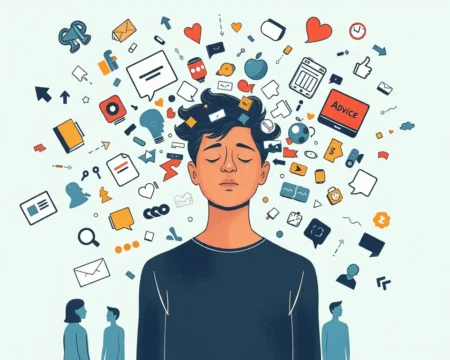Boston, MA – A new study from Northeastern University reveals that self-help groups significantly enhance the effectiveness of opioid addiction treatment. The research, published recently, indicates that combining medication with regular attendance at support groups increases the likelihood of patients completing their treatment by over 25%. This finding highlights the critical role peer support plays in addressing the ongoing opioid crisis.
The Opioid Crisis: A Persistent Challenge
The opioid crisis continues to be a major public health concern in the United States. While the number of overdose deaths decreased slightly from 2023 to 2024, the Centers for Disease Control and Prevention (CDC) still reports over 81,000 deaths in 2024. Moreover, an estimated 2.5 million Americans grapple with opioid addiction. This epidemic, driven by both prescription painkillers and illicit drugs like fentanyl and heroin, necessitates innovative approaches to treatment and recovery.
The Power of Combining Medication with Peer Support
Medication-assisted treatment (MAT), involving drugs like buprenorphine, methadone, and naltrexone, has been proven effective in managing withdrawal symptoms, reducing cravings, and improving overall functioning. However, many patients discontinue treatment prematurely, leaving them vulnerable to relapse and overdose. The Northeastern University study sought to understand what differentiates those who complete treatment from those who don’t.
Researchers analyzed a large national dataset of patients with opioid use disorder, using artificial intelligence to identify key factors contributing to successful treatment. The results revealed a clear pattern: patients who combined medication with participation in self-help groups demonstrated significantly higher rates of treatment completion.
Why Self-Help Groups Are So Effective
Self-help groups offer a unique environment of peer-driven support, empathy, and shared experience. These groups, often free and anonymous, provide a platform for individuals to connect with others who understand the challenges of addiction. This shared understanding fosters a sense of community and reduces the feelings of isolation, a common struggle among those battling substance use disorders.
Key benefits of self-help groups include:
- Reduced Isolation: Overcoming addiction can be a lonely journey. Self-help groups provide a space where individuals can share their experiences and feel understood by others who have walked a similar path.
- Increased Motivation and Hope: Witnessing others in recovery can instill hope and motivation. Hearing success stories from peers provides encouragement to remain committed to treatment.
- Practical Advice and Coping Strategies: Group members often share practical tips and coping techniques that have helped them stay sober.
- Accountability: The support and encouragement within the group foster a sense of responsibility to maintain sobriety and adhere to treatment plans.
- Sense of Belonging: Self-help groups create a sense of community, which is crucial for sustained recovery.
Types of Self-Help Groups
Various self-help groups cater to different needs and preferences. The most common types include:
- Twelve-Step Programs: These programs, such as Alcoholics Anonymous (AA) and Narcotics Anonymous (NA), follow a structured approach with 12 steps guiding individuals through recovery. They emphasize the importance of a higher power and mutual support.
- SMART Recovery: Self-Management and Recovery Training (SMART) is a secular, non-12-step program that focuses on self-empowerment and evidence-based techniques.
- Other Support Groups: There are also groups like Cocaine Anonymous (CA), Crystal Meth Anonymous (CMA), and Marijuana Anonymous (MA), tailored to specific substances. Additionally, groups like Al-Anon/Alateen provide support for family members affected by addiction.
These groups are typically free, anonymous, and easily accessible, making them a valuable long-term resource for those in recovery. It is advised that individuals try different meetings to find one where they feel comfortable and connected with other members.
The Importance of Long-Term Support
Self-help groups are not just beneficial during the initial treatment phase. They play a crucial role in sustaining long-term recovery by providing ongoing peer support, a stable environment, and reinforcement of coping strategies. Regular participation in these groups helps individuals maintain their sobriety and manage challenges they encounter throughout their recovery journey.
Addressing Barriers to Treatment
Despite the proven effectiveness of MAT and the value of self-help groups, numerous barriers prevent people from accessing these critical resources. These barriers include:
- Stigma: The stigma associated with addiction and medication-based treatment can deter individuals from seeking help.
- Limited Access: Many communities, especially rural areas, lack sufficient treatment facilities and self-help groups.
- Regulatory Barriers: Complex regulations and restrictions around medication-assisted treatment, like methadone and buprenorphine, limit access.
- Lack of Awareness: Insufficient education and awareness about the effectiveness of MAT and the benefits of self-help groups.
- Exclusion from Traditional Groups: Some individuals in MAT may feel excluded from traditional 12-step programs, which may promote a medication-free path to abstinence.
A Call for Integrated Treatment
The research from Northeastern University emphasizes the need for a more integrated approach to opioid addiction treatment. Combining medication with self-help group participation offers the most promising path toward recovery. Healthcare providers should encourage patients to explore various support group options and identify those that best fit their needs.
The Role of Professionals
Clinicians can play a vital role in connecting patients to self-help resources by:
- Educating patients about the benefits of self-help groups.
- Providing referrals to local programs.
- Encouraging patients to attend multiple meetings to find a good fit.
- Integrating peer support into comprehensive treatment plans.
Furthermore, collaboration between professional care and self-help groups creates a robust support system that addresses both the emotional and clinical aspects of addiction.
The Path Forward
The opioid crisis remains a significant challenge, but the findings from Northeastern University offer a beacon of hope. By embracing integrated treatment models that combine medication with the power of peer support, communities can empower individuals to achieve long-term recovery and build healthier, more resilient lives. Further research and policy changes are crucial to overcome existing barriers and ensure that effective treatment options are accessible to all those in need. This approach not only aids in the immediate recovery process but also builds a foundation for the long-term management of addiction, thereby reducing the risk of relapse.










